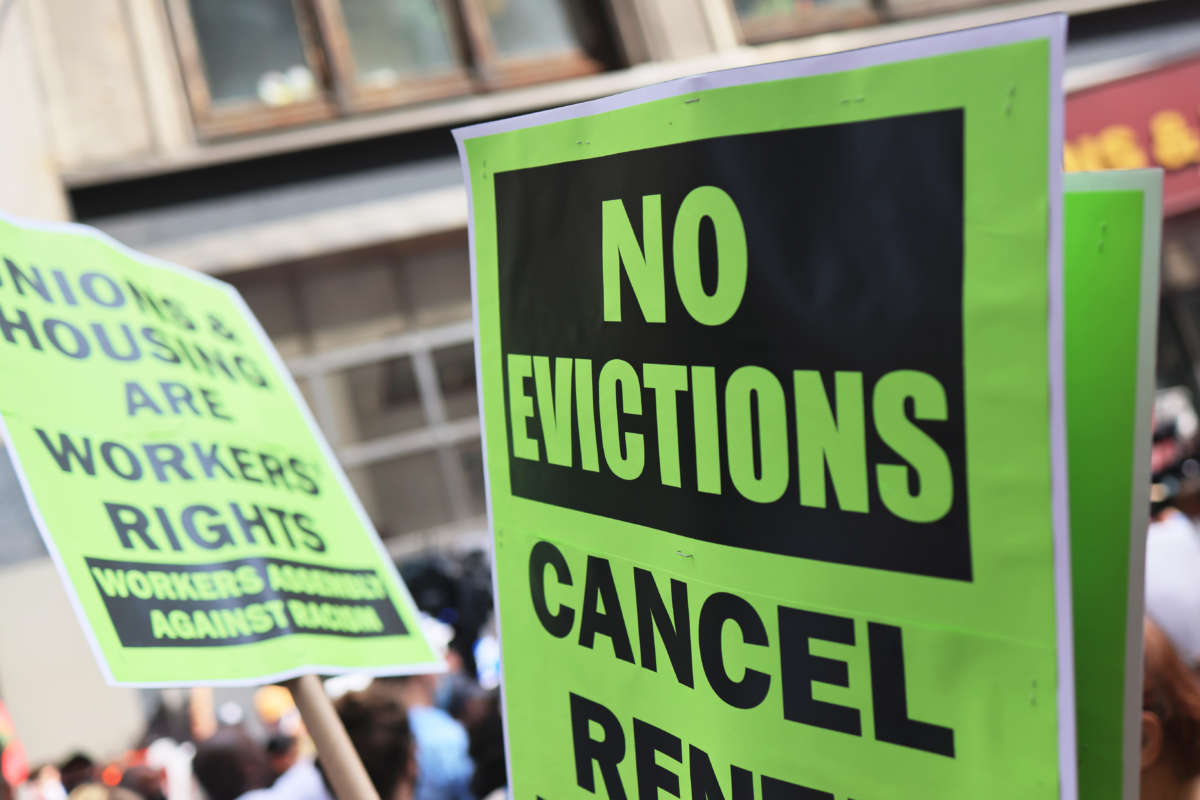According to the latest data from the Treasury Department, more than 83 percent of the rental assistance allocated to states by Congress has still not been distributed to vulnerable renters.
Congress authorized $46.5 billion in rental assistance funds through the most recent stimulus packages from December and March. Officials disbursed more assistance in August than in previous months, but as of the end of August, only $7.7 billion had been distributed total.
If jurisdictions continue their sluggish rollout of the program and don’t ramp up their distribution, they could lose their funding by the end of the month.
Though many local and state governments had no infrastructure to distribute rental funds when they were first authorized last year, the Treasury Department notes that 119 state and local jurisdictions have been able to distribute over half of their allocated funds so far.
Distributing the funds has become incredibly urgent not just for governments, but for the nearly 10 million renters who report being behind on rent payments. Late last month, conservative justices on the Supreme Court shot down the eviction moratorium enacted by the Biden administration, putting millions of renters at risk as the pandemic surges on.
Housing advocates have warned of an eviction “cliff” after the eviction moratorium is over, and experts have predicted that hundreds of thousands renters — if not over a million — could be evicted in the next few months.
Meanwhile, self-reported data reveals that millions of households could be facing the prospect of eviction; a Census Bureau survey from last month showed that about 3.6 million renters say they are either “likely” or “very likely” to face eviction, with the crisis being especially pronounced in the Southeastern United States.
According to Princeton University’s Eviction Lab, the eviction moratorium saved 1.55 million households from being evicted during the pandemic.
Evictions are not only harmful to a person and their family’s financial security, but also to their mental health, work, relationships and education. Being evicted is a major disruption in renters’ lives and harms their chances long term of securing other housing; once someone is evicted once, they are often evicted again in the future, fueling a vicious cycle.
Researchers have noted that the eviction crisis brought on by the depressed COVID economy will hurt Black communities the most. Among factors that contribute to landlords evicting a tenant, studies have found that the tenant’s race often plays a disproportionate role.
This week, progressive lawmakers introduced legislation to reinstate the federal eviction moratorium. The bill introduced by Sen. Elizabeth Warren (D-Massachusetts) and Rep. Cori Bush (D-Missouri) would empower the Department of Health and Human Services (HHS), which oversees the Centers for Disease Control and Prevention (CDC), to implement federal eviction moratoriums during a public health crisis. It would also compel the agency to immediately implement a moratorium that would expire 60 days after the current public health emergency is declared over.
“Nobody is safe until we’re all safe,” Bush said when introducing the bill. “An eviction moratorium is the difference between life and death for all of us.”
The bill has the support of 39 cosponsors in the House and five in the Senate. But it faces an uphill battle as Democratic leadership failed to pass an eviction moratorium extension this summer and as real estate groups pour millions of dollars into stopping moratorium efforts.
Meanwhile, housing advocates have called for direct cash relief for renters, arguing that the rental assistance program is bogged down by bureaucracy and red tape and that eviction moratoriums aren’t always effective at stopping evictions. Though the eviction rate was lowered by the moratorium, the Eviction Lab found that landlords have still evicted hundreds of thousands of tenants during the pandemic.
Speaking against the authoritarian crackdown
In the midst of a nationwide attack on civil liberties, Truthout urgently needs your help.
Journalism is a critical tool in the fight against Trump and his extremist agenda. The right wing knows this — that’s why they’ve taken over many legacy media publications.
But we won’t let truth be replaced by propaganda. As the Trump administration works to silence dissent, please support nonprofit independent journalism. Truthout is almost entirely funded by individual giving, so a one-time or monthly donation goes a long way. Click below to sustain our work.
